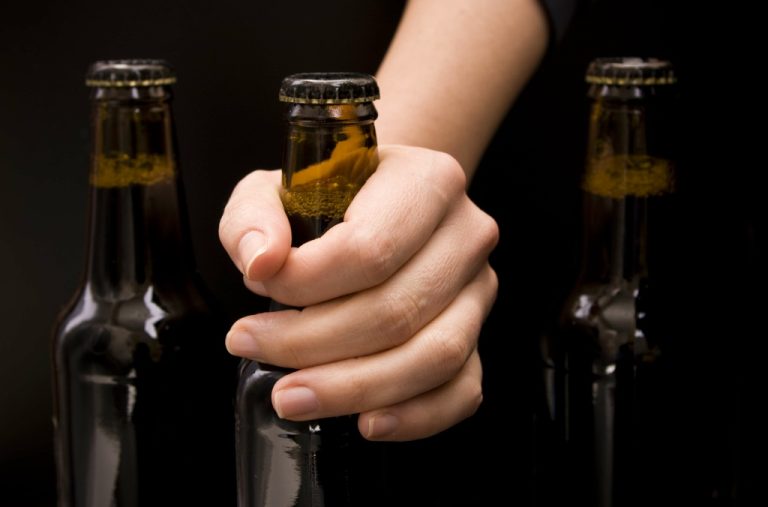When it comes to alcohol’s effects on the brain, the consequences are profound. It slows down brain activity, leading to issues like memory loss, poor muscle coordination, and delayed reaction times. In more extreme cases, excessive alcohol intake can trigger blackouts, resulting in episodes of amnesia that leave individuals confused and possibly causing damage to the brain. Alcohol brain fog refers to a range of cognitive impairments that occur during alcohol consumption or in the aftermath. While “brain fog” is not a medical term, it’s widely used to describe symptoms like confusion, forgetfulness, lack of focus, and mental clarity. In the context of alcohol, these symptoms can be acute (occurring shortly after drinking) and chronic, lasting long after the alcohol has left your system.

Reducing stress
We’ve all made the connection between sleep and tiredness, but the effects of sleep deprivation on the brain and body are extensive. https://thegodschildproject.net/samh-is-the-scottish-association-for-mental-health.html In fact, a 2021 study found dehydration can affect memory and mood. A good rule of thumb is to drink enough fluids for your urine to be clear or light yellow.
What Is Non-HDL Cholesterol? Understanding Your Heart Health
A rapidly growing email list that provides the highest quality FREE sober resources and tips to live an addiction-free life, without limits. If you need help cutting alcohol out of your life, we’re here to help and would be happy to talk. Alcohol increases the sedative http://beeset.ru/girls-and-drugs-devochki-perepili-i-perekurili/ effects of the neurotransmitter GABA (gamma-aminobutyric acid), which blocks certain signals from the central nervous system. It also dulls the excitatory neurotransmitter glutamate, which plays a key role in learning, memory, sleep, and mood. Dr. Anand stresses the importance of drinking in moderation, if at all.
A Timeline for Cognitive Recovery after Abstinence
Include foods that are rich in antioxidants, such as fruits, vegetables, and whole grains, which help protect the brain from oxidative stress. Additionally, incorporate foods with omega-3 fatty acids, like salmon and walnuts, which support cognitive function. Drinking an adequate amount of water throughout the day helps maintain cognitive abilities and supports overall brain health. Aim to drink at least 8 glasses of water daily to stay properly hydrated.
This decrease in brain activity not only affects us while we’re drinking, but it can result in brain fog the next day. It’s also why we might have difficulty concentrating or recalling certain things. Your habits before you came to the treatment center can also contribute to brain fog. Many people with an alcohol addiction are malnourished, and it is possible that your body does not have the nutrients it needs for proper brain functioning. Your brain fog may also be another side effect of the symptoms that accompany withdrawal.
- Completely avoiding alcohol and eating a balanced diet can help minimize damage.
- It’s important to realize that brain fog itself is not a medical condition but rather a symptom of certain conditions.
- If you don’t already have a supportive network, you can make new connections by joining social media communities dedicated to alcohol-free living.
- Additionally, incorporating mindfulness activities like meditation can play a role in strengthening brain circuits that may have been affected by alcohol use.
- If you’re experiencing brain fog as a result of a hangover, it typically lasts between 8 to 24 hours.
Find Alcohol Addiction Rehab

Your brain is made up of about 73% water, so it needs enough of it to function properly. One of the primary reasons why alcohol causes brain fog is dehydration. Alcohol is a diuretic, meaning it causes the kidneys to produce more urine to remove alcohol’s toxins from the body. In that process, you also lose a lot of the water your body needs for optimal cognitive function. Abstinence can often reverse the harm that drinking may do to the brain.


Seeking treatment and maintaining sobriety is essential to prevent relapse and keep your cognitive function on the rise. High stress levels can cloud your mind, making it difficult to focus and think clearly. By managing stress through exercise, meditation, deep breathing, and journaling, you can clear the fog and enhance your mental clarity. Any brain that’s been the victim of extended substance abuse certainly couldn’t be harmed by a memory or concentration exercise. They should seek mental health services and pursue therapy that deals with all of their conditions at once.
- Studies show support groups play an instrumental role in helping people develop healthy social networks that result in continued sobriety.
- The consumption of alcohol leads to an interference with neurotransmitters and negatively affects overall brain health, causing what we know as alcohol brain fog.
- Recovering alcoholics experience substantial and variedthinking deficits at 2 weeks into recovery.
- The typical 750 ml bottle of wine contains 10 units, as an example.
- The severity and duration of brain fog can vary depending on the individual’s alcohol consumption history and the duration of withdrawal.
- One study found that clearing brain fog after drinking is possible with long-term sobriety, with a considerable reduction in symptoms of brain fog starting 6 months after the last drink.
- If your brain fog is disrupting your everyday routine or making it hard to perform daily tasks, you should make an appointment with a healthcare professional.
- While they are in the program, they should drink plenty of water and eat nutritious food.
Brain fog isn’t a medical condition but rather a term used to identify an entire set of symptoms that affect your ability to think. Brain fog can make you feel confused or disoriented, making it difficult to focus, put your thoughts into words, and stay organized. During detox, the body goes through https://logoburg.com/page346480.html a series of changes as it adjusts to functioning without alcohol.



